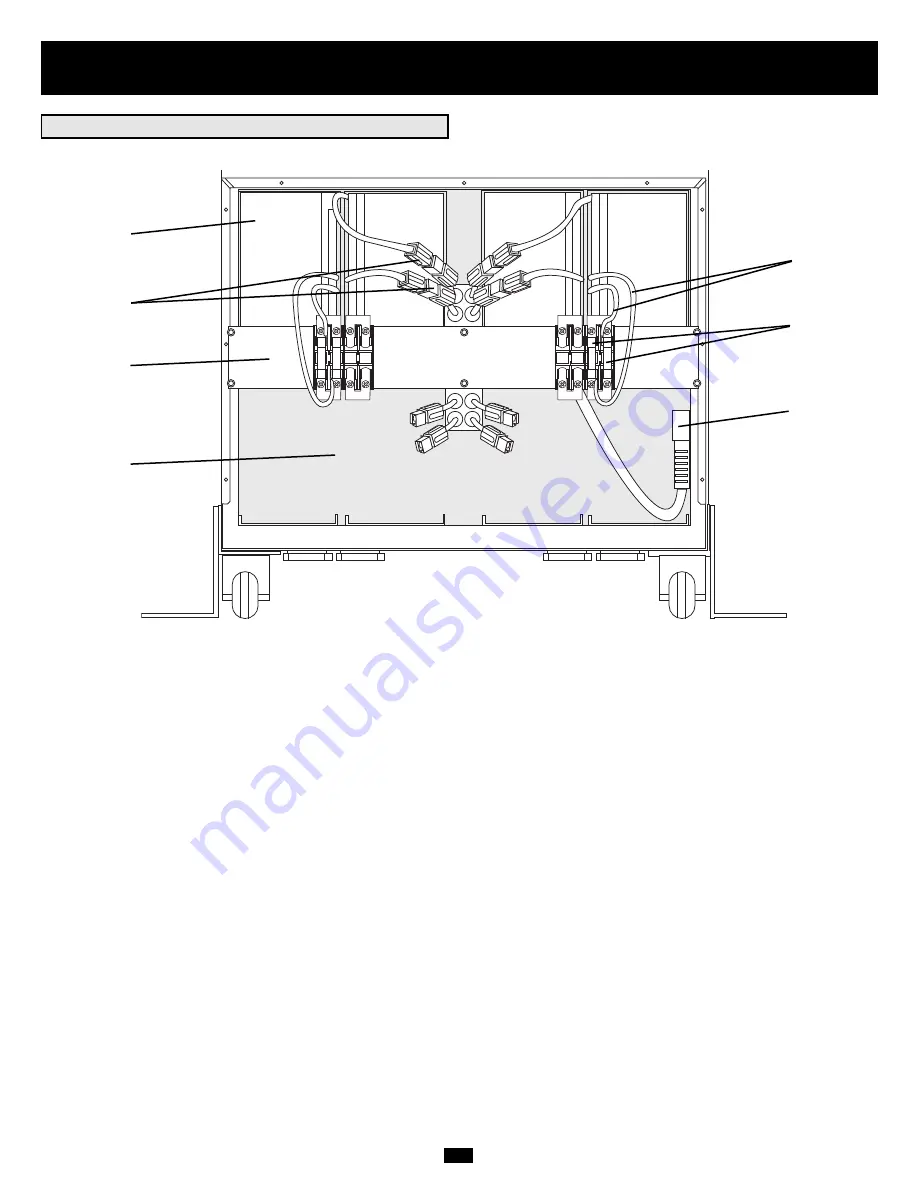
4
Front Panel
(continued)
1. Internal Battery Packs:
These supply backup runtime to connected equipment. Each pack consists of two strings (one positive and one negative).
The number of included battery packs varies depending on UPS model number. Battery packs must replaced by a qualified electrician. See “Adding or
Replacing Internal Batteries” section for details.
2. Battery Cartridge Fuses:
Protect against short circuit damage. If a heavy overload or short circuit is encountered, a fuse will blow. A battery pack
with a blown fuse will not deliver any output voltage to the UPS system. The fuses must be replaced by a qualified electrician. See “Fuse Replacement”
in the "Adding or Replacing Internal Batteries" section for details.
3. Internal Battery Pack Connectors (Red & Black):
Connect the individual internal battery packs to the overall battery system.
4. Internal Battery Pack Jumper Cables (White & Blue):
Connect the internal battery pack strings together through the fuse block.
5. Battery System Connectors:
One connector (internal, not shown) connects the battery module to the power module. The other connector (shown)
connects the battery module to an additional optional battery module (not shown, available separately from Tripp Lite). The battery system connectors
are only utilized when adding an additional battery module. Use of these connectors is outlined in the owner's manual included with the additional
battery module.
6. Extended Runtime Capability:
Open slots accept additional internal battery packs (available separately from Tripp Lite) to extend runtime. The
number of open slots varies depending on UPS model number. Select models accept the connection of an additional battery module (available separately
from Tripp Lite) to further extend runtime. Contact Tripp Lite for details.
7. Fuse Block Bracket:
Accepts Battery Cartridge Fuses.
BATTERY ACCESS PANEL (cover removed)
1
2
3
4
5
6
7
Individual models may vary slightly from diagram.





































